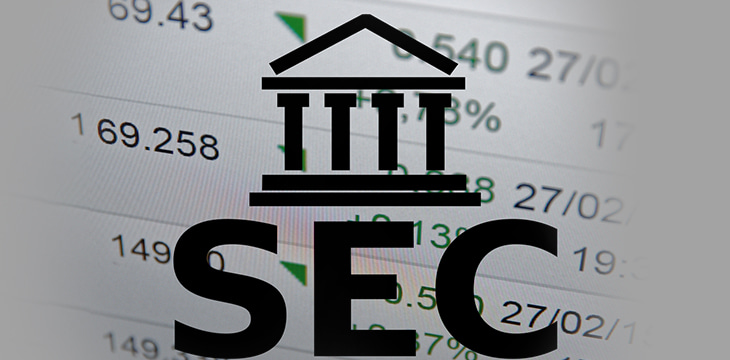|
Getting your Trinity Audio player ready...
|
The U.S. Securities and Exchange Commission (SEC) plans to establish a new office under its Disclosure Review Program (DRP), focusing exclusively on digital asset company filings.
Known as the “Office of Crypto Assets,” the new space was established alongside the Office of Industrial Applications and Services, adding to the seven existing sector-focused offices under the DRP.
The new office will continue with the work currently performed across the DRP to review company filings related to digital assets, according to the SEC’s press release. The regulator believes this will enable the DRP to better focus its resources and expertise to address the unique and evolving issues related to the rapidly-growing sector.
“As a result of recent growth in the crypto asset [industry]… we saw a need to provide greater and more specialized support in the DRP’s Office of Finance. The creation of these new offices will enable the DRP to enhance its focus in the areas of crypto assets, financial institutions, and facilitate our ability to meet our mission,” the SEC Director of the Division of Corporate Finance, Renee Jones, commented.
The new office is in line with other efforts this year by the SEC to better police the Bitcoin industry. While it hasn’t yet been officially assigned the role of the digital asset industry watchdog, the SEC has continued to act like the industry’s de facto regulator.
SEC’s continued dominance in digital asset regulation stems from a firm belief that most tokens are securities, a sentiment that Chairman Gary Gensler recently reiterated.
“Of the nearly 10,000 tokens in the crypto market, I believe the vast majority are securities. Offers and sales of these thousands of crypto security tokens are covered under the securities laws.” Gensler stated in a September 8 speech.
Gensler, also a former CFTC chairman, brushed aside some of the popular defenses by ‘crypto bros,’ stating:
“It’s not about whether you set up a legal entity as a nonprofit and funded it with tokens. It’s not whether you rely on open-source software or can use a token within some smart contract…Promoters are marketing and the investing public is buying most of these tokens, touting or anticipating profits based on the efforts of others.”
The new office comes months after the SEC doubled its headcount in its Cyber Unit, which it also renamed the Crypto Assets and Cyber Unit.
Watch: SEC Commissioner Hester Peirce on Bitcoin Association’s Blockchain Policy Matters

 02-19-2026
02-19-2026 




